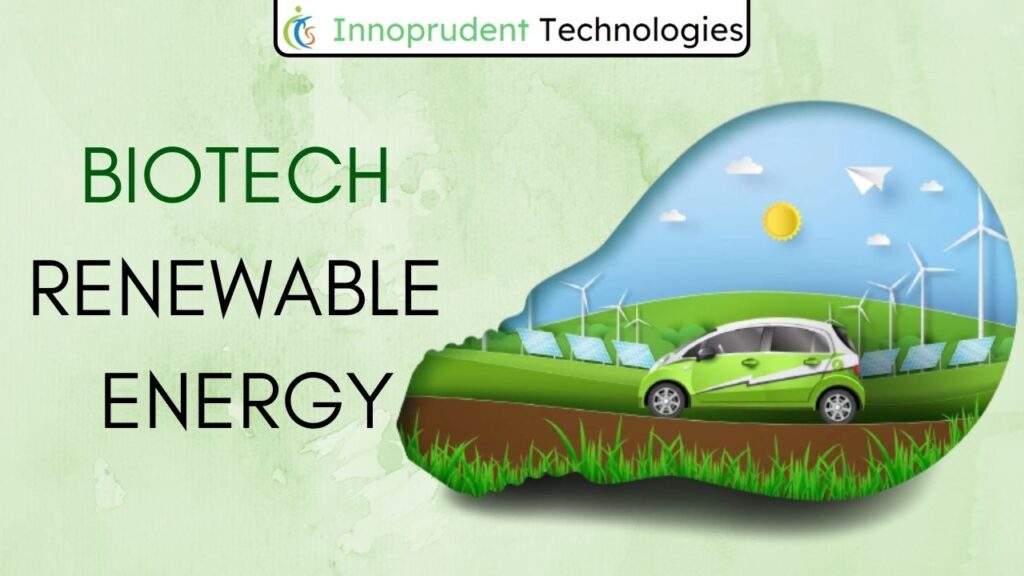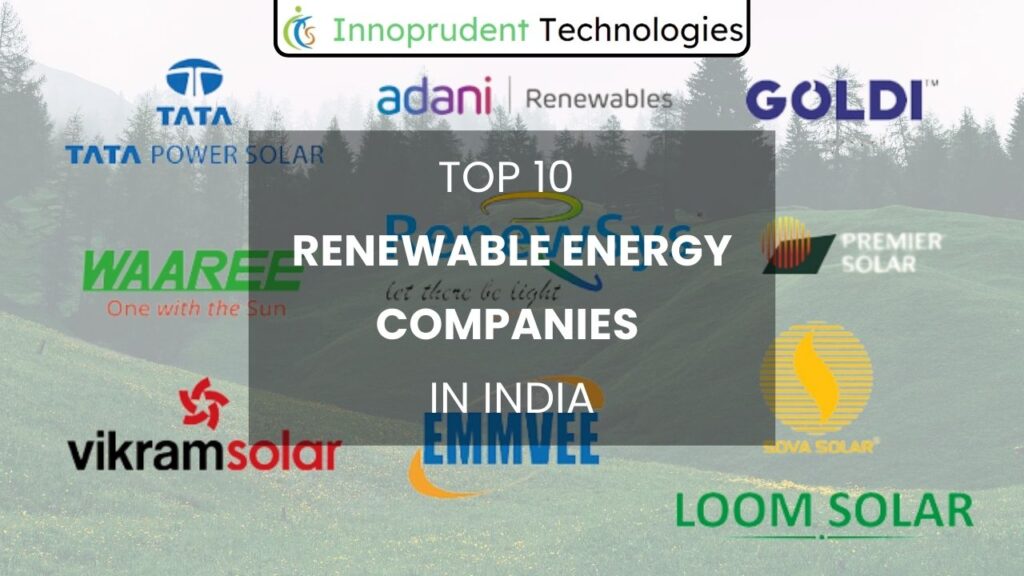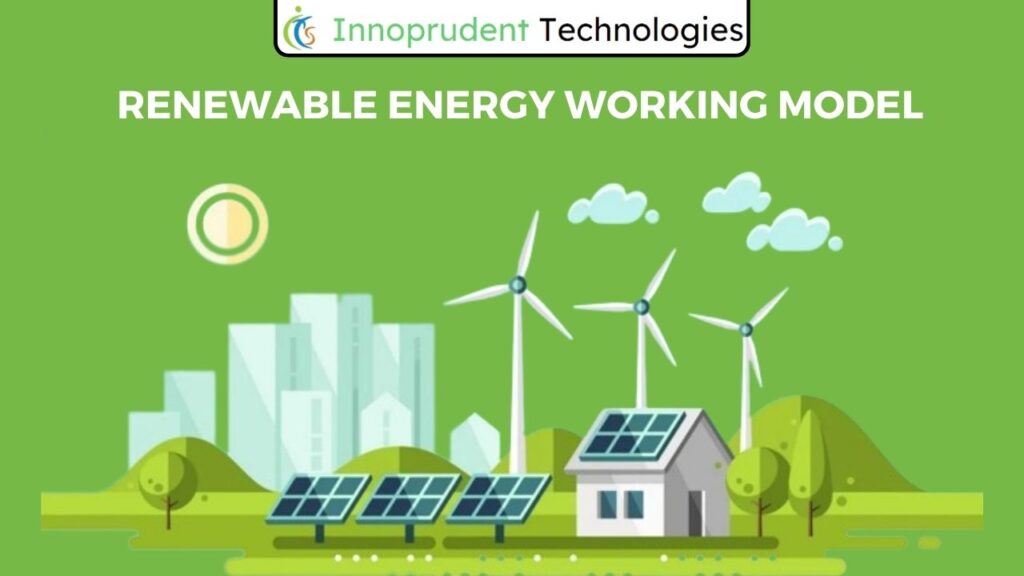Picture a world where the air is clean, the skies are clear, and our energy comes from sources that don’t harm the planet. This dream is becoming a reality, thanks to a fascinating field known as biotech renewable energy. It’s like a superhero in the fight against climate change, using the power of living organisms to create cleaner, greener energy.
In this article, we’re going to dive into the exciting world of biotech renewable energy and discover how it’s shaping the future of our planet. So, buckle up and get ready to explore the incredible innovations that are lighting up our path toward a more sustainable and eco-friendly world!
The Renewable Energy Imperative
The world is at a critical juncture, where the need for renewable energy sources has never been more pressing. Fossil fuels, such as coal, oil, and natural gas, have long been the primary sources of energy, but their extraction and consumption have resulted in alarming levels of greenhouse gas emissions and environmental degradation. The consequences of these emissions, including global warming, sea-level rise, and extreme weather events, are now undeniable.
Renewable energy sources, on the other hand, offer a way forward. These sources, which include solar, wind, hydro, and geothermal power, produce little to no greenhouse gas emissions and have the potential to provide a sustainable energy supply for generations to come. However, there are challenges associated with these renewables, such as intermittent availability and energy storage. This is where biotechnology enters the stage.
The Biotech Renewable Energy
Biotechnology, a field that involves using living organisms or their systems to develop or create useful products and processes, has begun to play a pivotal role in the renewable energy sector. Researchers and innovators are tapping into the incredible diversity of life on Earth to address the limitations of traditional renewable energy sources.
Biofuels: Nature’s Liquid Gold
One of the most prominent areas of biotech innovation in renewable energy is biofuels. Biofuels are liquid or gaseous fuels made from living organisms, primarily plants and microorganisms. They offer a viable alternative to traditional fossil fuels, such as gasoline and diesel, as they can be produced from renewable biomass sources.
- Algae Biofuels: Algae are microscopic organisms that can convert sunlight into energy through photosynthesis. Researchers have harnessed the power of algae to produce biofuels, such as biodiesel and bioethanol. Algae biofuels have several advantages, including high growth rates, minimal land requirements, and the ability to thrive in diverse environments. Moreover, they do not compete with food crops for land and resources.
- Microbial Fuel Cells: Microorganisms like bacteria can be used in microbial fuel cells to generate electricity directly from organic matter. This technology has the potential to turn wastewater treatment plants and organic waste into energy-producing systems.
Genetic Engineering for Enhanced Biomass
Genetic engineering techniques have been employed to modify plants and microorganisms for increased biomass production. For example, scientists have engineered certain plant species to grow faster and yield more biomass for biofuel production. These genetically enhanced crops can help meet the growing demand for renewable energy without requiring additional land resources.
Enzymatic Conversion of Biomass
Biotech processes are being used to develop enzymes that can efficiently convert biomass into biofuels and other valuable chemicals. These enzymes are designed to break down complex plant materials into simpler sugars, which can then be fermented to produce biofuels like ethanol.
Bioprocessing for Cleaner Energy
Biotechnology is also improving the efficiency of bioenergy production through bioprocessing techniques. These methods involve using microorganisms to break down organic matter and produce biofuels in a cleaner and more sustainable manner. Bioprocessing not only reduces waste but also reduces the carbon footprint of bioenergy production.
Biotechnology and Solar Energy
While biotechnology’s impact on biofuels is substantial, it also extends to other renewable energy sources like solar energy.
- Photosynthetic Organisms for Electricity Generation
Photosynthetic organisms, such as cyanobacteria, have been engineered to produce electricity directly from sunlight. These “bio-solar cells” harness the power of photosynthesis to generate electricity, offering a promising avenue for sustainable energy production.
- Biologically Inspired Solar Cells
Researchers are taking inspiration from natural processes to develop more efficient solar cells. By studying photosynthesis and the way plants convert sunlight into energy, scientists are designing solar panels that mimic these processes. These biologically inspired solar cells aim to capture and store solar energy more efficiently than traditional photovoltaic cells.
Biotechnology and the Circular Economy
Biotech innovations are not limited to energy production alone; they also play a vital role in creating a circular economy, where resources are recycled and reused efficiently. In the context of renewable energy, this means finding ways to use waste materials from bioenergy production as inputs for other processes, creating a closed-loop system.
Bio-Based Materials
Biotechnology enables the production of bio-based materials, such as bioplastics and biofibers, which can replace traditional petroleum-based materials in various applications. These bio-based materials are not only more sustainable but can also be used in the construction of renewable energy infrastructure, reducing the environmental footprint of such projects.
Challenges and Ethical Considerations
While biotechnology holds great promise for renewable energy, it is essential to address certain challenges and ethical considerations:
- Environmental Impact: The large-scale cultivation of biomass for biofuels can lead to habitat destruction, water use, and other environmental concerns. Careful management and sustainable practices are crucial to mitigate these issues.
- Genetic Modification: The genetic modification of organisms for enhanced biofuel production raises ethical questions about unintended consequences and potential ecological impacts. Responsible and transparent research and development are essential.
- Land Use: Utilizing land for bioenergy crops may compete with food production and natural ecosystems. Balancing the need for renewable energy with land conservation and food security is a complex challenge.
- Social Equity: The deployment of biotech renewable energy solutions should consider social equity, ensuring that benefits are distributed fairly across communities and regions.
Some More Posts
Wrapping Up
Biotechnology is rapidly reshaping the renewable energy landscape, offering innovative solutions to the world’s energy and environmental challenges. From biofuels to biologically inspired solar cells, biotech innovations have the potential to revolutionize how we produce and consume energy while mitigating the impacts of climate change. However, it is essential to approach these innovations with caution, addressing ethical and environmental concerns as we transition toward a more sustainable energy future. With continued research, responsible development, and a commitment to sustainability, biotech renewable energy may hold the key to a cleaner and more prosperous world for generations to come.
Frequently Asked Questions (FAQs)
1. What is biotech renewable energy?
Biotech renewable energy refers to the use of biotechnology, which involves the manipulation of living organisms or their systems, to produce cleaner and more sustainable energy sources. It encompasses various technologies and processes that leverage biological systems for energy generation and storage.
2. How does biotechnology contribute to renewable energy?
Biotechnology contributes to renewable energy by enabling the production of biofuels, improving the efficiency of biomass conversion, developing genetically enhanced crops for bioenergy production, and even creating novel energy-generation technologies inspired by biological processes.
3. What are some examples of biotech renewable energy sources?
Examples of biotech renewable energy sources include algae biofuels, microbial fuel cells, genetically modified crops for biofuel production, enzymatic conversion of biomass, and bio-solar cells that use photosynthetic organisms to generate electricity.
4. Why are biofuels considered a promising renewable energy source?
Biofuels are considered promising because they can be produced from renewable biomass sources like plants and microorganisms. Unlike fossil fuels, they produce minimal greenhouse gas emissions and have the potential to reduce our dependence on non-renewable resources.
5. Are there any environmental concerns associated with biotech renewable energy?
Yes, there are environmental concerns related to biotech renewable energy. Large-scale cultivation of bioenergy crops can lead to habitat destruction, water use, and potential competition with food production. Responsible and sustainable practices are essential to mitigate these issues.




Pingback: Customized Solutions: How Innoprudent’s Consulting Services Can Help Your Business – Innoprudent